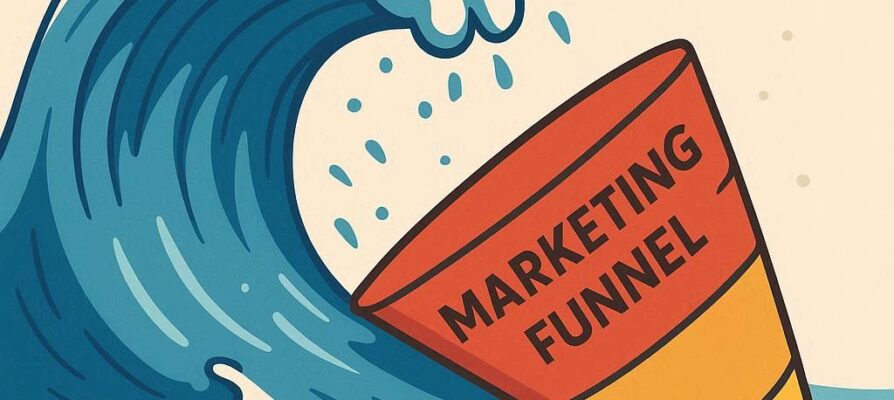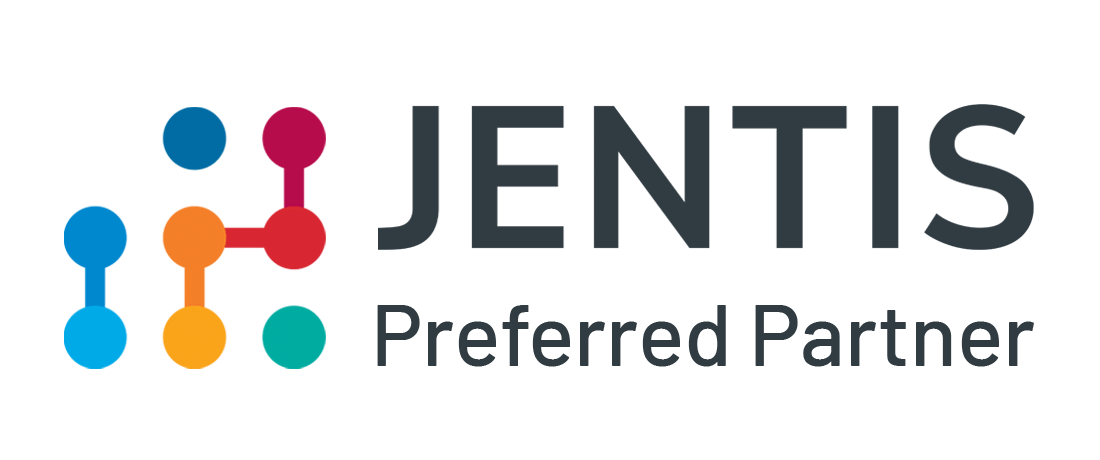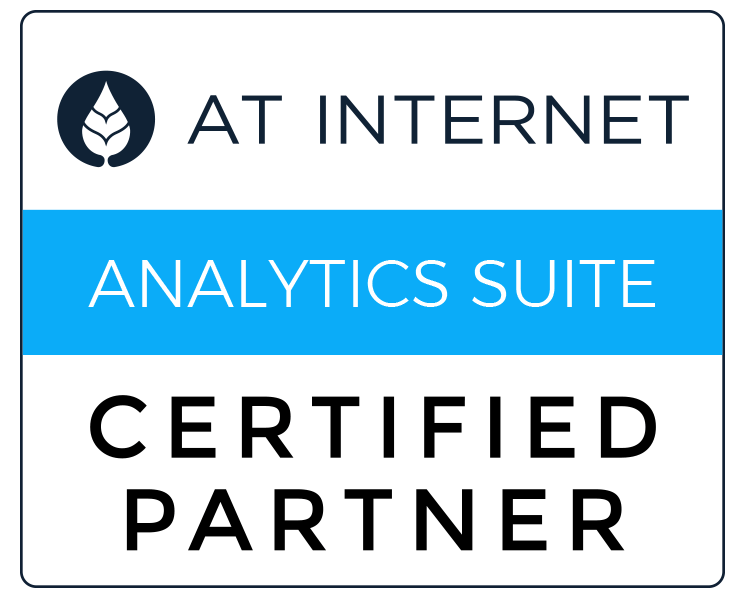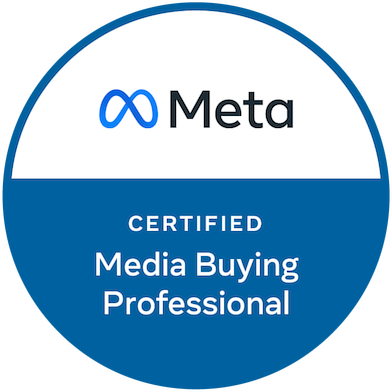For industrial and technical B2B businesses, the sales cycle has always been complex. You’re not selling a one-click consumer product; you’re building trust, demonstrating expertise, and helping decision-makers justify investments that often involve multiple stakeholders.
But the way buyers discover, research, and choose suppliers has changed. Most of this journey now happens online — and often before your sales team ever gets involved. This is where AI driven B2B Marketing comes in.
AI is transforming how companies attract and engage prospects at the very top of the funnel. From smarter targeting in awareness to more relevant communication in consideration, AI ensures that the right message reaches the right person at the right time.
In this post, we’ll walk through the funnel with a focus on awareness and consideration — the stages that matter most for lead generation — before briefly touching on decision and retention.
Understanding the Modern B2B Marketing Funnel
The funnel is a simple way to describe the journey from stranger to customer:
- Awareness – A prospect first discovers your company.
- Consideration – They research and evaluate your solution.
- Decision – They choose a supplier.
- Retention & Advocacy – They stay loyal and recommend you.
For B2B buyers, the top of the funnel is critical. If you don’t get noticed early, you may never make the shortlist later. That’s why AI-driven strategies in awareness and consideration are so powerful: they ensure your business is visible, relevant, and valuable before competitors even show up.
Awareness: Smarter Targeting & Lead Generation
If you’ve run ads on Google or LinkedIn before, you’ve already benefited from AI. These platforms have used machine learning for years to:
- Automate bidding so your ad spend is optimized for clicks or conversions.
- Match content to users based on interests, job titles, and search behavior.
What’s changed now is the data and tools available to marketers themselves. Instead of leaving all the heavy lifting to ad platforms, B2B marketers can use AI to get ahead of the curve.
Here are some practical ways:
- Leverage Intent Data: AI platforms can tell you which companies are actively researching solutions like yours. For example, if a manufacturing firm is suddenly consuming a lot of content around “predictive maintenance software,” you can target them with ads and outreach before competitors even know they’re in-market.
- Use Predictive Analytics: Rather than guessing which markets or accounts are most promising, AI can analyze past customer wins to predict where new opportunities are most likely to emerge.
- Content Optimization: AI tools like MarketMuse or Clearscope analyze search intent and recommend exactly how to structure content so it ranks higher in search engines and appeals to your target audience.
What should a B2B marketer do?
- Align ad spend with intent signals instead of broad categories.
- Develop content hubs around predictive keyword opportunities.
- Use AI-driven ABM tools to prioritize accounts showing early buying signals.
This means you’re not just waiting for prospects to find you — you’re actively positioning your business in front of the right buyers at the right time.
Consideration: Deeper Engagement with AI
Once a prospect is aware of your company, the next challenge is keeping them engaged while they research options. At this stage, many businesses rely on email campaigns, gated content, or webinars.
Traditional “personalized” emails (like using someone’s first name or sending based on job title) are no longer enough. AI takes it further in several ways:
- Journey Prediction: AI doesn’t just send emails based on static workflows (“if they download X, send Y”). It predicts what the buyer is most likely to need next and adjusts the sequence automatically.
- Send-Time Optimization: Instead of blasting everyone at 10 a.m. Tuesday, AI analyzes when each individual is most likely to open and act — improving engagement rates.
- Dynamic Content Creation: AI tools can adapt email subject lines, layouts, and calls-to-action in real time depending on the recipient’s behavior. For example, a buyer who previously engaged with a technical whitepaper might see more in-depth product content, while a new lead might get a case study.
- Channel Recommendations: AI doesn’t limit itself to email. It can recommend when to nudge prospects via LinkedIn, display ads, or even direct sales outreach based on their activity.
What should a B2B marketer do?
- Replace static nurture campaigns with AI-driven journeys that adapt to each prospect’s behavior.
- Test AI-driven subject lines and calls-to-action that optimize themselves over time.
- Use AI analytics to decide whether to re-engage a lead with ads, email, or sales outreach.
This makes the buyer experience smoother and more relevant, increasing the chances that they’ll reach out or request a demo.
Decision: AI as Sales Support
While you might not handle sales enablement, it’s worth noting how AI supports this stage. AI can score leads so sales teams know which ones to prioritize, and it can suggest the most effective content or messaging for closing deals.
From a markers perspective, the key takeaway is this: the better the lead quality from awareness and consideration, the smoother the decision stage becomes.
Retention & Advocacy: Supporting Customer Success (Briefly)
AI also helps with keeping customers happy after the sale. From predicting churn to identifying upsell opportunities, AI ensures businesses maintain strong customer relationships.
For marketers, this ties back to awareness and consideration. A happy customer is more likely to advocate for your brand, which in turn feeds the top of the funnel through referrals and testimonials.
Benefits of using AI for B2B Marketing
The biggest advantages of AI for awareness and consideration are:
- Precision: You focus only on prospects who are actively in-market.
- Relevance: Every touchpoint — ads, emails, content — adapts to the buyer.
- Efficiency: Less wasted spend on broad campaigns that miss the mark.
- Better Leads: Sales receives prospects that are informed, engaged, and more likely to convert.
For technical and industrial businesses, this means your marketing isn’t just a cost center — it becomes a measurable driver of growth.
The Human + AI Advantage
Looking ahead, AI will only become more central to B2B marketing. We’ll see:
- Even more accurate predictive buying journeys.
- Tighter integration with account-based marketing (ABM) strategies.
- Greater focus on ethical AI and data transparency.
But one thing won’t change: the need for human expertise. AI can tell you who to target and when, but it takes people to craft the message, build trust, and nurture long-term relationships.
The businesses that win will be those that combine AI’s efficiency with human creativity and oversight.
AI has already changed how your buyers find and evaluate suppliers. The question is: are you using it to your advantage, or are you leaving opportunities on the table?
Advance Metrics specializes in helping industrial and technical B2B businesses use AI-driven strategies for awareness and lead generation — from smarter targeting to dynamic engagement campaigns.
Talk to us today about how AI B2B Marketing can help you generate more qualified leads and stay ahead of competitors.









